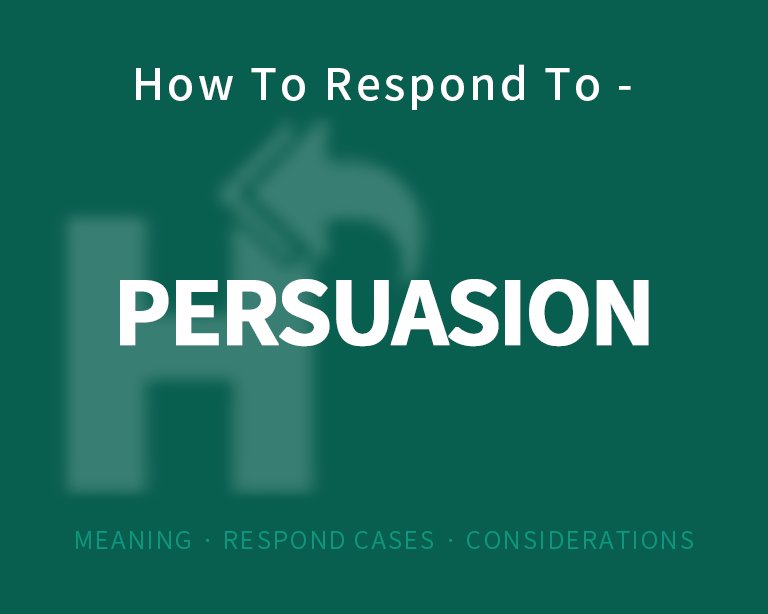The Best Way to Respond to Persuasion?

Persuasion is a powerful tool that can be used to influence people's thoughts and behaviors. It can be difficult to respond to persuasion because it often targets our emotions rather than our logical thinking. In this article, we will discuss how to respond to persuasion in a conversation.
What is Persuasion in a Conversation
Persuasion is the act of convincing someone to believe or do something. It can be done through various means such as appealing to emotions, using logic and reason, or using social proof. In a conversation, persuasion can be identified by the use of persuasive language or tactics.
3 Specific Cases of Persuasion
Case 1: Advertising
Background: You are watching a commercial for a new product. The advertisement claims that this product is the best on the market and will change your life.
Suitable reply sentence: ""Thank you for sharing this information with me. I will keep it in mind, but I would like to do some research on the product before making a decision.""
Case 2: Peer Pressure
Background: Your friends are encouraging you to try a new activity that you are uncomfortable with.
Suitable reply sentence: ""Thank you for the invitation, but I don't feel comfortable with that activity. I appreciate your offer, but I will have to decline.""
Case 3: Political Persuasion
Background: A politician is giving a speech about a controversial topic in which you have strong opinions.
Suitable reply sentence: ""I appreciate your perspective, but I respectfully disagree. I believe that [insert your opinion], and I would be happy to discuss this further with you.""
How to Think About Responding to Persuasion
When faced with persuasion, it is important to take a step back and think about the situation. Consider the speaker's motives and the information they are presenting. Take time to evaluate the evidence and think critically about the claims being made. It is also helpful to consider your own beliefs and values and how they align with the message being presented.
Considerations When Responding to Persuasion
When responding to persuasion, it is important to remain calm and composed. Avoid reacting emotionally and take time to gather your thoughts. It is also helpful to ask questions and seek clarification. This can help you better understand the speaker's perspective and the reasoning behind their argument.
Conclusion
In conclusion, responding to persuasion can be challenging, but it is an essential skill in communication. By staying true to yourself and taking a thoughtful approach, you can respond effectively to persuasion. Remember that it's okay to have different opinions and beliefs, and that respectful disagreement is a valuable part of healthy communication. Keep practicing and developing your skills, and you will become a master at responding to persuasion.